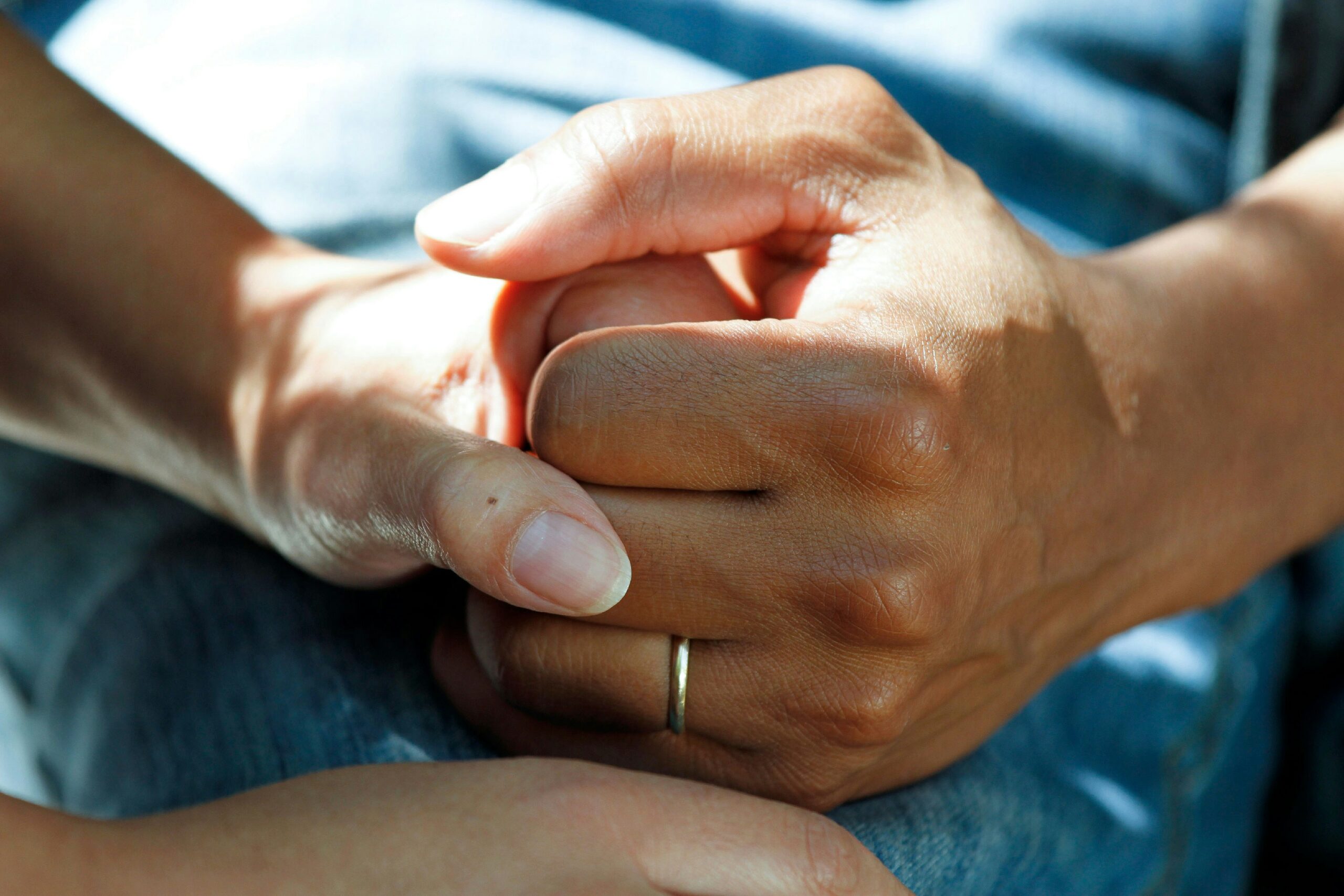Let's face it – taking care of our health isn't always at the top of our to-do list. But when it comes to our prostate, it's important to pay attention to any potential problems. So, what happens if you ignore those nagging symptoms or put off that trip to the doctor? Well, without proper treatment, prostate problems can escalate, leading to complications that can impact your quality of life. From urinary difficulties to increased risk of serious conditions, this article explores the potential consequences of leaving prostate problems untreated and highlights the importance of seeking timely medical intervention. So, let's not delay any further and dive right into understanding the risks of neglecting your prostate health.
Understanding Prostate Problems
The prostate is a small gland located in the male reproductive system. Its main function is to produce seminal fluid, which nourishes and transports sperm during ejaculation. Under normal circumstances, the prostate functions without any issues and does not cause any discomfort. However, certain conditions can arise that may affect the normal functioning of the prostate, leading to various problems.
Common Prostate Problems
There are several common prostate problems that men may experience at some point in their lives. These include prostatitis, benign prostatic hyperplasia (BPH), and prostate cancer. Each of these conditions has distinct symptoms and requires different approaches to diagnosis and treatment.

Reasons behind Prostate Problems
While the exact causes of prostate problems are not always clear, there are several factors that may contribute to their development. Age is a significant risk factor, as the prostate tends to enlarge naturally as men get older. Hormonal imbalances, genetic predisposition, and lifestyle choices such as diet and exercise can also play a role in the development of prostate problems.
Symptoms Of Prostate Problems
Prostate problems can present with a variety of symptoms, which can vary depending on the specific condition. It is important to pay attention to any changes in urinary function, sexual health, or pelvic discomfort, as these may be indications of a prostate problem.
Urinary Symptoms
One of the most common symptoms of prostate problems is urinary dysfunction. This may include frequent urination, difficulty starting or stopping urination, weak urine flow, or a sense of urgency. Some individuals may also experience pain or discomfort during urination.
Sexual Dysfunctions
Prostate problems can also lead to sexual dysfunctions. These may manifest as erectile dysfunction, difficulty ejaculating, or a decrease in sexual desire. It is essential to recognize these changes and seek medical attention if they persist or worsen over time.
Pelvic Discomfort
Pelvic discomfort or pain is another symptom that may accompany prostate problems. This discomfort can range from mild to severe and may be persistent or come and go. It is important to consult with a healthcare professional if pelvic discomfort is experienced.

Types of Prostate Diseases
Understanding the different types of prostate diseases is crucial in identifying and addressing the specific condition. The most common prostate diseases include prostatitis, benign prostatic hyperplasia (BPH), and prostate cancer.
Prostatitis
Prostatitis refers to the inflammation of the prostate gland. It can be caused by bacterial infection or non-infectious factors such as inflammation or autoimmune reactions. Symptoms may include pain in the prostate area, difficulty urinating, and discomfort during ejaculation.
Benign Prostatic Hyperplasia
Benign prostatic hyperplasia, also known as an enlarged prostate, occurs when the prostate gland grows in size over time. It is a non-cancerous condition but can cause urinary symptoms such as frequent urination, weak urine flow, or difficulty emptying the bladder completely.
Prostate Cancer
Prostate cancer is a malignant growth that originates in the prostate gland. It is one of the most common types of cancer among men. Symptoms may be similar to those of other prostate problems, but other signs such as bone pain, unexplained weight loss, or blood in the urine may also be present.
Prostatitis and Its Complications
Understanding Prostatitis
Prostatitis can be a challenging condition to diagnose and treat, as it has various potential causes. It can be acute or chronic, with chronic prostatitis often being more difficult to manage. The condition can significantly impact a man's quality of life, causing pain, discomfort, and urinary symptoms.
Possible Complications If Unnoticed or Untreated
If prostatitis goes unnoticed or untreated, several complications may arise. Chronic prostatitis can lead to recurrent urinary tract infections, which can migrate to the kidneys and cause more severe health issues. The inflammation can also affect sexual function and fertility, leading to sexual dysfunctions or reduced sperm quality.
Long-term Implications
Long-term implications of prostatitis can include a reduced quality of life due to chronic pain and discomfort. Additionally, chronic prostatitis may increase the risk of developing mental health problems such as depression and anxiety. It is essential to seek medical attention if symptoms persist or worsen over time.

Benign Prostatic Hyperplasia and Its Complications
Understanding Benign Prostatic Hyperplasia
Benign prostatic hyperplasia occurs when the prostate gland enlarges, pressing against the urethra and causing urinary symptoms. It is a common condition among older men and is generally not associated with an increased risk of prostate cancer. However, it can still significantly impact a man's quality of life.
Possible Complications If Unnoticed or Untreated
If left untreated or undetected, benign prostatic hyperplasia can lead to several complications. These may include recurrent urinary tract infections, bladder stones, urinary retention (inability to empty the bladder completely), or kidney damage. It is crucial to address the symptoms promptly to prevent these complications from occurring.
Long-term Implications
Long-term implications of untreated benign prostatic hyperplasia include a diminished quality of life due to persistent urinary symptoms and discomfort. It can also lead to an increased risk of bladder or kidney problems. Seeking medical advice and appropriate treatment can help manage symptoms and prevent long-term complications.
Prostate Cancer and Its Complications
Understanding Prostate Cancer
Prostate cancer is a serious condition that requires early detection and prompt treatment. It occurs when abnormal cells grow uncontrollably in the prostate gland, potentially spreading to other parts of the body. Prostate cancer can be slow-growing and may not cause noticeable symptoms in its early stages.
Possible Complications If Unnoticed or Untreated
If prostate cancer goes unnoticed or untreated, it can lead to various complications. The cancer cells can spread through the bloodstream or lymphatic system, forming secondary tumors in other organs. This process, known as metastasis, can be life-threatening and significantly impact overall health.
Long-term Implications
The long-term implications of untreated prostate cancer are severe and may include a shortened life expectancy, decreased quality of life, and increased pain and discomfort. Regular screenings and swift intervention are crucial for early detection and a better prognosis.
Impact on Men’s Sexual and Reproductive Health
Prostate problems can have a significant impact on men's sexual and reproductive health. Conditions such as prostatitis, benign prostatic hyperplasia, and prostate cancer can lead to various sexual dysfunctions and reproductive issues.
Erectile Dysfunction
Erectile dysfunction, or the inability to achieve or maintain an erection sufficient for sexual intercourse, can be a common consequence of untreated prostate problems. The physical and psychological effects of prostate conditions can contribute to this condition, significantly affecting a man's sexual health and relationships.
Infertility
Prostate problems, particularly chronic prostatitis, can affect male fertility. Inflammation in the prostate gland can impair sperm production and quality, reducing the chances of conception. Addressing the underlying prostate condition is essential in managing this aspect of men's reproductive health.
Lower Libido
Prostate issues can also impact a man's libido or sexual desire. Hormonal imbalances, physical discomfort, and psychological factors associated with prostate conditions can significantly diminish sexual drive. Seeking appropriate treatment and addressing the underlying condition can help restore libido and improve sexual well-being.
Psychological Effects of Untreated Prostate Problems
The impact of untreated prostate problems extends beyond physical symptoms and can have significant psychological effects on men's well-being.
Stress and Anxiety
Living with untreated prostate problems can induce high levels of stress and anxiety. The uncertainty surrounding the condition, fear of complications, and disruptions to daily life due to urinary symptoms or sexual dysfunctions can contribute to mental distress. Seeking proper diagnosis and treatment can help alleviate these psychological burdens.
Depression
Untreated prostate problems can also increase the risk of developing depression. Chronic pain, persistent urinary symptoms, and the emotional toll of living with a long-term condition can lead to feelings of sadness, hopelessness, and loss of interest in activities. It is crucial to address these symptoms and seek support from healthcare professionals.
Impact on Relationships
Prostate problems can strain relationships due to the physical and psychological effects they have on men. Difficulties with sexual function, decreased libido, or emotional distress can create challenges for intimacy and communication. Open and honest communication, as well as seeking professional help, can help couples navigate these challenges and maintain a healthy relationship.
Preventive Measures for Prostate Problems
While some risk factors for prostate problems cannot be controlled, there are several preventive measures individuals can take to reduce their risk and maintain prostate health.
Healthy Lifestyle Choices
Adopting a healthy lifestyle can significantly contribute to prostate health. This includes regular exercise, maintaining a balanced diet rich in fruits, vegetables, and whole grains, and avoiding excessive alcohol consumption. It is also important to maintain a healthy weight and manage stress levels.
Regular Check-ups
Regular check-ups with a healthcare professional are crucial for early detection of prostate problems. Routine prostate-specific antigen (PSA) screenings and digital rectal examinations can help identify potential issues before they become more serious. Discussing symptoms or concerns with a healthcare provider is essential for proactive healthcare management.
Medication and Supplements
In some cases, medications or supplements may be prescribed to manage specific prostate conditions or reduce symptoms. It is important to follow the prescribed regimen and discuss any potential side effects or interactions with healthcare professionals. It is equally important to consult with a healthcare provider before starting or stopping any medications or supplements.
Treatment Options for Prostate Problems
The treatment options for prostate problems depend on the specific condition and its severity. Here are some common treatment modalities:
Medication
Medications, such as antibiotics for prostatitis or alpha-blockers for benign prostatic hyperplasia, are commonly prescribed to manage prostate problems. These can help alleviate symptoms and improve overall prostate health.
Surgery
Surgical intervention may be necessary for certain prostate conditions, particularly in cases of severe benign prostatic hyperplasia or prostate cancer. Surgical procedures can vary, ranging from transurethral resection of the prostate (TURP) for BPH to radical prostatectomy for prostate cancer.
Radiation Therapy
Radiation therapy may be recommended for localized prostate cancer or as palliative care for advanced cases. This treatment modality uses high-energy radiation to target and destroy cancer cells, reducing their ability to grow and spread.
Lifestyle Amendments
Making lifestyle amendments can complement medical treatments and improve outcomes. This may include modifications in diet, exercise routines, stress management techniques, and avoiding tobacco and excessive alcohol consumption.
In conclusion, understanding prostate problems, their symptoms, causes, and potential complications is crucial for maintaining overall health and well-being. Early detection, appropriate treatment, and proactive lifestyle choices can help manage prostate problems and reduce the risk of long-term consequences. It is important to consult with a healthcare professional for accurate diagnosis and personalized treatment plans. Remember, taking care of your prostate health is an important part of maintaining a healthy and fulfilling life.

